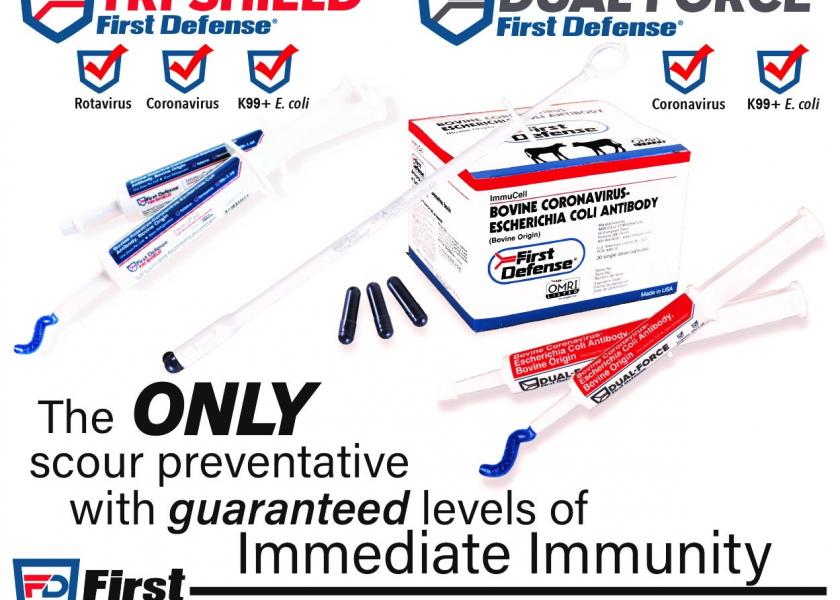Colostrum Inactivates Some Scours Vaccines

Despite the industry’s best efforts, calf scours remains a major challenge for unweaned calves. Even with all the tools producers use to combat the disease, no significant reductions in scour-related illnesses have been seen.
One commonly used tool is a modified-live oral scours vaccine against bovine rotavirus and coronavirus, two major scour-causing pathogens. These vaccines are given to newborn calves, which mount an immune response a week or two later — long after they are likely to encounter, and be infected by, those pathogens.
That's how things are supposed to work, but now a study has shown that maternal colostrum can inactivate those vaccines and render them useless. Researchers took colostrum from cows, some vaccinated with dam-level scours vaccines and some not. When the colostrum was immediately added to virus samples from the modified-live vaccine, the vaccine was 100% neutralized by the colostrum antibodies in every sample.
When the colostrum was withheld for 30 minutes — simulating the act of delaying colostrum in an attempt to give the vaccine time to “work” — the majority of the vaccine (over 90%) was still neutralized in samples from both vaccinated and non-vaccinated cows.
The modified-live oral scours vaccines may even be detrimental to the calf: When antibodies from colostrum are busy binding to the vaccine virus, they are less available to fight off other pathogens the calf encounters. The calf's immune system then functions at a reduced level.
Today, there's a new alternative to oral modified-live scours vaccines: Tri-Shield® from the First Defense® line of USDA-approved antibody products. Tri-Shield is pre-formed antibodies that target all three of the most common scour pathogens (E. coli, coronavirus and rotavirus). It provides immediate immunity — without vaccine stress or being inactivated by colostrum — guaranteed.
Tired of ineffective scours vaccines? Kick the habit here







